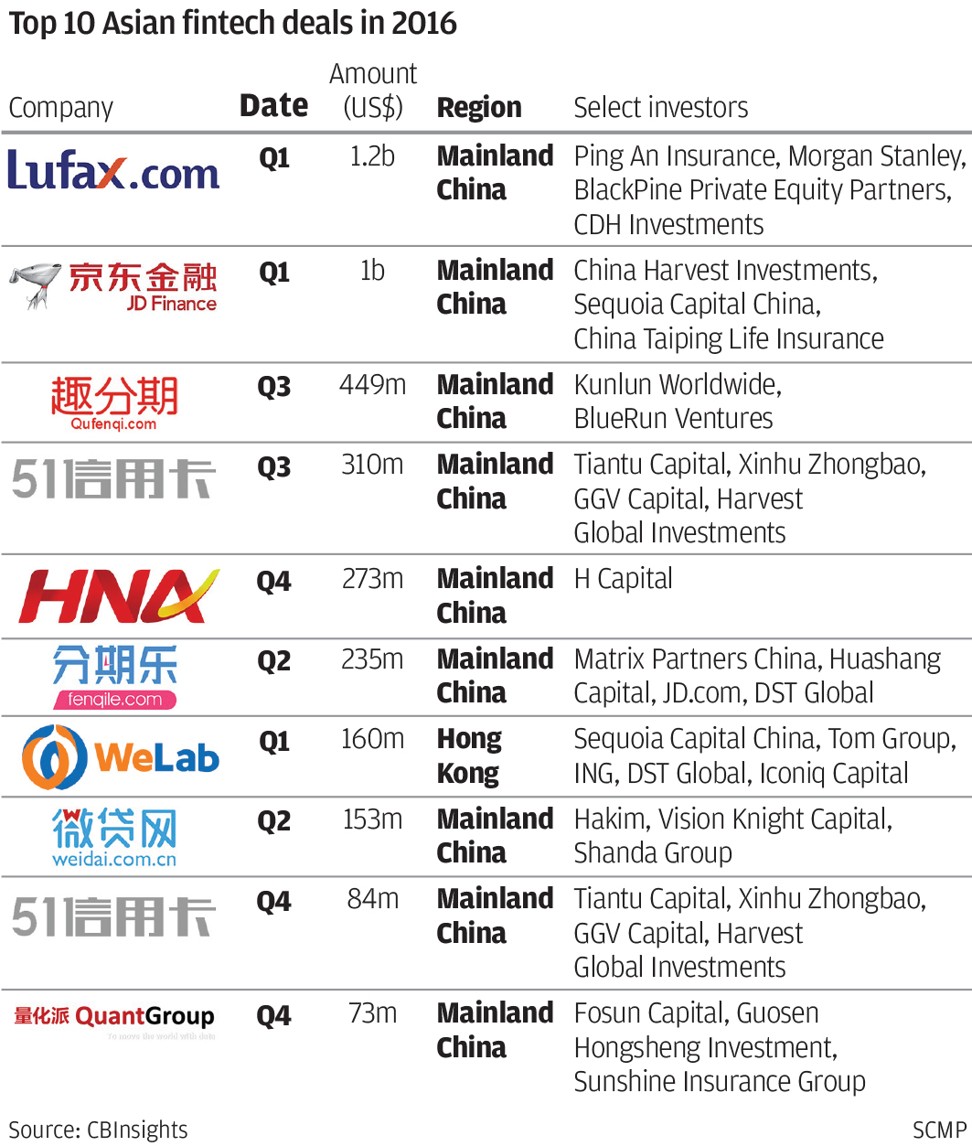
Hong Kong’s future is in learning new words: fintech, regtech, wealthtech
Long considered a global financial services hub, Hong Kong has all the conditions needed to create a tech hub, but it just needs to change its DNA

Hong Kong’s role as a global financial hub may be under threat unless the city can embrace technology and adapt quickly to the tectonic changes that have taken place in the financial landscape in the two decade since its return to Chinese rule, experts say.
The future may very well be in the combination of technology with the key pillars of finance, wealth management, insurance, legal and compliance services of Hong Kong’s economy. Three words will be crucial to this future: fintech for financial technology, regtech for regulatory technology and wealthtech for wealth management technology.
“Hong Kong is a fantastic hub that is close to mainland China. It has all the conditions required to create the environment for a technology hub, but it needs to change its DNA,” said Henri Arslanian, PwC’s fintech and regtech leader for China and Hong Kong.
With that objective in mind, over the past year the city has stepped up its efforts to encourage fintech innovation, with the Hong Kong Monetary Authority setting up a fintech innovation hub and a supervisory sandbox to encourage financial institutions to experiment with fintech solutions.
But industry insiders say Hong Kong needs to do even more to transform into a burgeoning hub for financial technology.
Hong Kong’s greatest moment of innovation was in 1997 with the Octopus card, a smart-card payment system that is now a ubiquitous part of daily life. Two decades since, the city has not made further progress and has lagged mainland China in exploring new forms of electronic payment such as Tencent Holdings’ WePay or Alibaba Group Holding’s Alipay.

The company, which manages a robo-investment adviser app called Chloe, wants to make retail investing accessible to the millennial generation, whom Abdulla said were “grossly underserved” in Hong Kong.
“We saw a huge market of people in their 20s and 30s that don’t have a high income. They’re just starting out in investing and don’t have a high degree of financial fluency,” he said, adding that asset managers and wealth managers often made finance “complicated”.
Chloe first asks users a number of questions to assess their risk appetite and investment goals before generating a customised investment portfolio based on the data and the company’s machine learning technology.
Hong Kong was the main market for the start-up, Abdulla said. The company also has a presence in Japan and has about 60,000 users in both markets.
Hong Kong’s existing banking model would change dramatically with the rise of fintech, similar to how Amazon.com revolutionised America’s retail industry, he said.
“There’s no reason why the exact same impact will not happen in Hong Kong,” Abdulla said. “People who need money management solutions are simply going to do it through their smartphones rather than go to a branch and speak to someone.”
For Hong Kong to succeed as a fintech hub, regulators should license more companies to handle clients’ money to accelerate innovations in fintech and wealthtech, or the use of technology for wealth management and investing, he said.
While start-ups like 8 Securities believe the retail investment market has enormous potential, others say Hong Kong’s success as a fintech hub will come if the city focuses on business-to-business fintech.
Hong Kong was a “natural fintech hub”, thanks to its strength in financial services, Arslanian said.
“More than 70 of the world’s largest 100 banks are in Hong Kong, and this gives the city a big advantage because in fintech, the majority of the customers are going to be banks,” he said.
“It may be difficult for Hong Kong to become a [business-to-consumer] fintech hub, considering the small size of the local market. However, it can definitely become a B2B hub, considering the large number of financial institutions that have their headquarters in Hong Kong.”
As many as 82 per cent of incumbent banks and financial institutions plan to increase partnerships with fintech companies in the next three to five years, according to a fintech survey in Hong Kong by PwC this year.
This not only allowed financial institutions to achieve their goals without much capital expenditure, it was also a faster way to market for fintech companies, the report said.
Regtech, which uses technology to facilitate compliance requirements, was a key area that Hong Kong should focus on to cement its status as a global fintech hub, Abdulla said.
“About 80 per cent of anti-money-laundering costs come from headcounts. Now we have the technology to deal with it more effectively. All the banks are in the region, and international regtech companies use Hong Kong as a stepping stone to help companies reduce cost and risks in a more efficient way,” he said.
For fintech to thrive in the city, Hong Kong needed to attract more technology talent in the near future by making it an attractive destination for large technology companies to set up their regional headquarters, he said.
“While Hong Kong has an abundance of the ‘fin’ talent, it is not as strong when it comes to its ‘tech’ talent pool. This can be improved in many ways from attracting large technology firms to Hong Kong to embedding programming and technology-related courses in school curriculums,” Arslanian said.
KPMG’s head of innovation and clients Egidio Zarrella said Hong Kong needed to take that base in financial services to innovate and move to the next level.
“If you think nobody else is going to catch up, then everyone is going to catch up because technology is making everything a level playing field,” Zarrella said.
